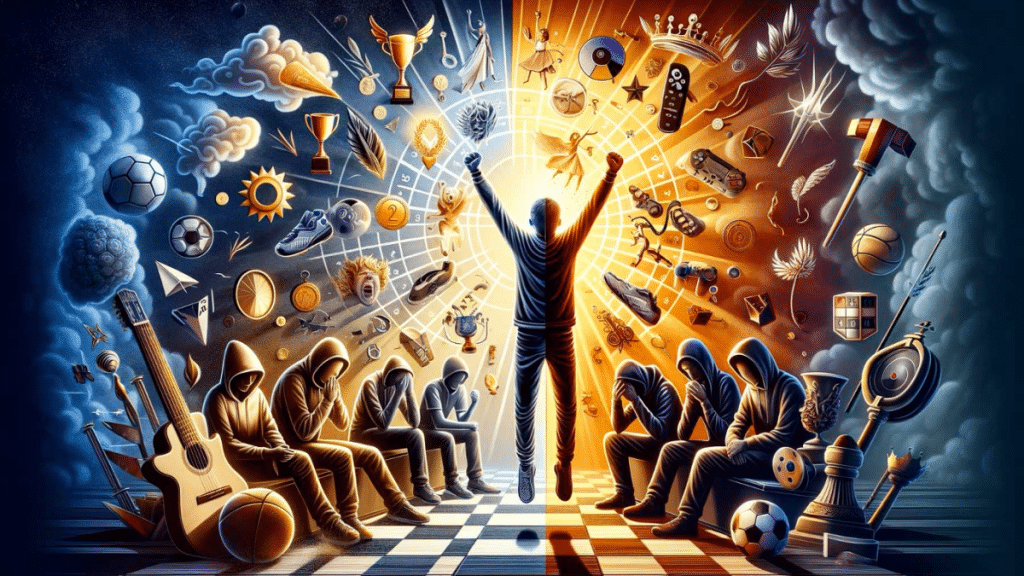In this technological world, games of chance cast a magic spell on the minds of people all over the world. But what is it about these games that draws us in so deeply? Whether it’s a flip of a card, a spin of the wheel, or just scratching off a ticket, this anticipation of the win can wake up something deep inside us. Similar to people using a BDMBet Promo Code to maximize chances of success, there is this tingle of psychological pull that really sets our love into overdrive concerning the experience of gaming, even when slim chances against us exist.
The Thrill of Uncertainty: A Dopamine Rush
The root of the problem is how the brain reacts to uncertainty. For instance, when a person is gambling, the anticipation of winning triggers the release of dopamine in the brain-a neurotransmitter directly linked with pleasure and reward. This is the very same neurotransmitter that might fire when we eat our favorite food or reach a long-desired goal.
The interesting thing is that dopamine doesn’t just spike when we win-it actually peaks in anticipation of the outcome. This is why the very gamble or playing of a game is as thrilling as the actual winning of it.
Such a dopamine rush begins a feedback loop. The more highs one has through playing, the more likely the person is to seek that feeling again. That is why so many people come back for more even when the losses mount up in games of chance. Sometimes, just the anticipation of an event can be addictive.
The Illusion of Control in an Uncontrollable World
So much of life is based on chance, and games of chance are one means by which we can invite such random happenstance into our lives on our terms. Whether it be the roll of the dice or the shuffle of a card, these activities afford us with agency in taking the reins of good fortune-even if that is merely an illusion.
Whereas interestingly, studies have shown that despite such games being called games of chance, players firmly believe in “hot streaks” or superstitions which can tip the balance in their favor.
This is an empowering illusion of control. Gaming relieves the structured, sometimes monotonous routines of daily existence. In an era in which so much of what we do is scheduled and planned, the spontaneity of games of chance creates an escape in which anything can happen. And then, of course, when luck strikes it confirms our belief in taking risks and further reinforces the idea that every now and then, fate can be moved in our favor.
Why We Keep Coming Back?
At bottom, the love of games of chance is all about hope. Even when the odds are grossly against us, we keep on playing, hoping that the next game, spin, or bet might be it-the one that changes everything. This optimism is a potent motivator: it’s what puts people in line to buy lottery tickets, or to enter giveaways or sweepstakes when full well they know how small the odds of winning are.
Interestingly, this sense of hope exceeds the simple financial gain. Many people understand such games of chance as an effort toward changing their lives, something like starting again, which is but one good stroke of luck away. This is precisely why, regardless of the odds, the allure remains so great. The idea that at any moment everything can change constitutes a powerful narrative of our inmost desires.
The Role of Technology in Magnifying the Thrill
These days, technology has completely changed our approach to games of chance. Starting from virtual casinos, where almost all sorts of games are available, to apps allowing spinning digital wheels or drawing cards, access to gaming became much easier. And this also provoked a number of innovations amplifying the thrill: virtual reality experiences and online gaming sessions live-streamed with real casino atmosphere.
The challenge for companies is to make them stay, for which they have used advanced algorithms to analyze player behavior. Knowing how to create experiences for the tastes of a particular person makes for maximum user engagement. However, the secret to their success doesn’t just lie in technology but knowing the psychological triggers behind why people love playing the game in the first place.
Conclusion: Timeless Appeal of Chance
The psychological appeal of games of chance is complex, compounded from excitement, hope, control, and sociality. It is a mixture of that ancient human craving for challenge with the modern love for convenience, enabled by technology. Whether it’s the excitement of a possible win, the novelty of a shared experience, or just that anticipatory rush, there’s something innately appealing about leaving things to chance.
So, next time any of you has this urge to try your luck-be it using any special bonus co or spinning a wheel-remember, it is about that journey, that experience, and those powerful emotions attached to it, not really about winning and losing.
